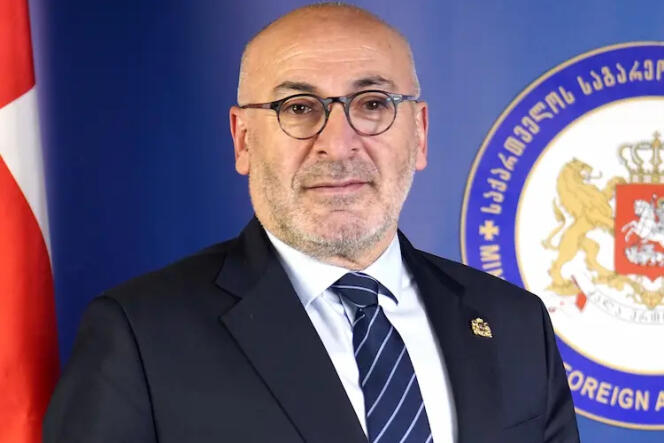


Gocha Javakhishvili, Georgia's ambassador to France, announced his resignation on Thursday, May 9, due to the controversial bill on "foreign influence" being put back before Parliament. Thousands of Georgians have been protesting against this bill for almost a month. He is the first Georgian official of this level to resign in protest. In an interview with Le Monde, the 57-year-old diplomat, who has never been a political party activist, says he acted to defend his "honor" and calls on his government to withdraw the bill, which is modeled on a Russian law aimed at silencing civil society and independent media and which threatens Georgia's European integration.
It's a question of principle and honor. I call for the withdrawal of this bill. I don't want to get into political debates or score points with the opposition – I'm a civil servant and have no preference for any political party. I'm proud of the vibrancy of Georgian civil society. To label it as a "foreign agent" is reductive, as it plays a vital role in democracy.
I had already voiced my disapproval when the text was first introduced into Parliament in March 2023. In the face of public outcry, the government withdrew it. With the return of the bill, I found myself in a very uncomfortable situation, particularly with my contacts at the Elysée and the French foreign ministry, to whom I had promised that it had been abandoned and that we would never go back to it. What's more, I'd be hard-pressed to find arguments to explain to them why it's back today. This situation made it no longer possible for me to relay my country's European message. I was afraid of being hypocritical, so I couldn't imagine continuing my duties.
I wrote a letter of resignation to the foreign affairs ministry on April 17 [when the bill passed on first reading]. However, as I'm appointed by the president [Salome Zurabishvili], she has to sign it. This should happen very soon. Perhaps my departure will make those who support this law's adoption think again.
I haven't spoken to my colleagues, but most of them are deeply pro-European. I can't rule out that my example may be followed, but that wasn't my aim. Everyone will do as their conscience dictates.
I've already waited a while. I told myself: "They'll listen to our partners' recommendations and change their minds." Yet when I accompanied a delegation of French senators to Georgia, and the leaders told them it was a "harmless" law that would protect against "foreign interference," I sensed their determination to pass this legislation. I'm not very optimistic, but I'm clinging to the hope that they'll amend or withdraw it after all.
You have 44% of this article left to read. The rest is for subscribers only.
